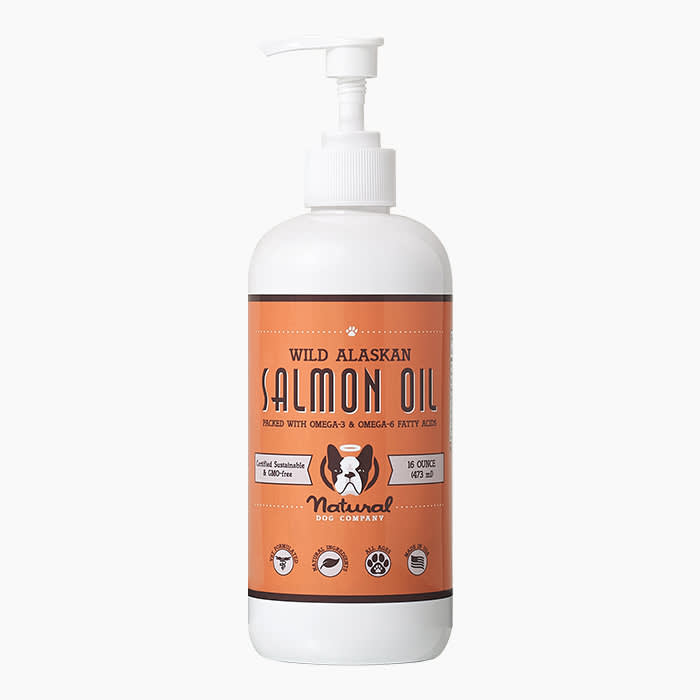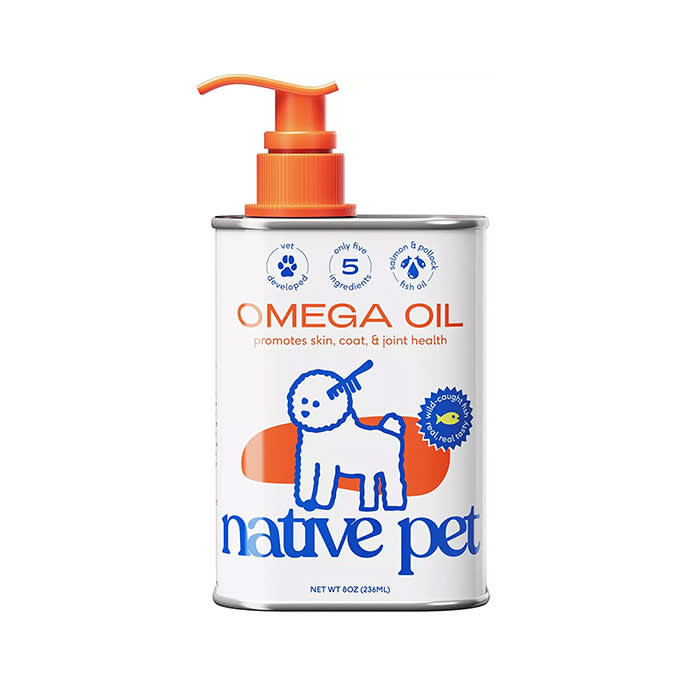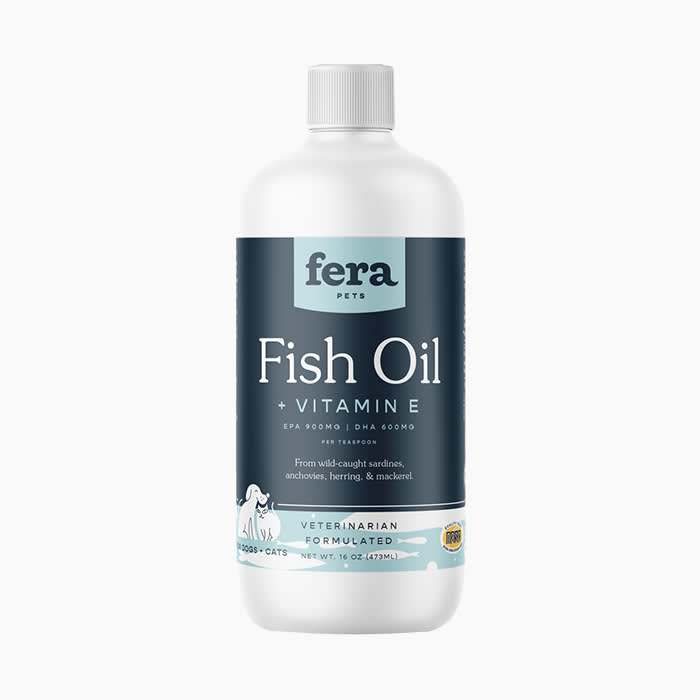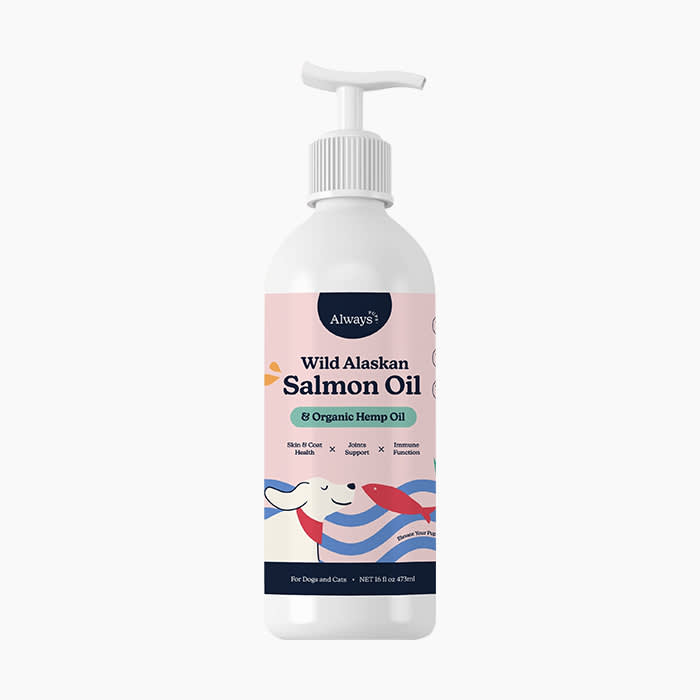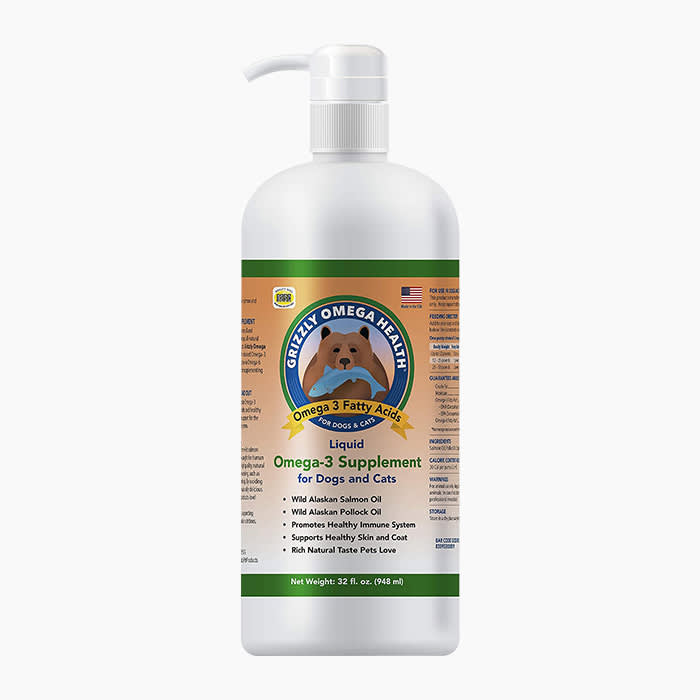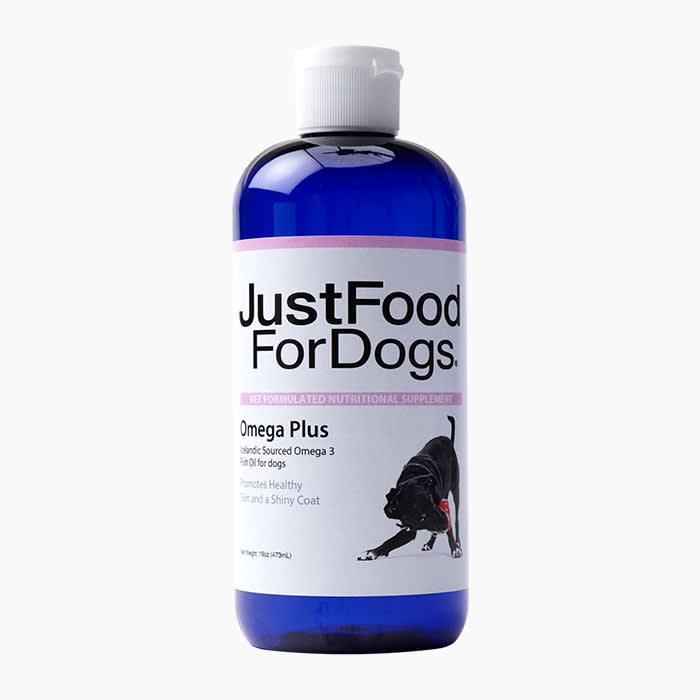Big Fish: The Best Omega-3 Supplements for Dogs (And Why They Need Them)
Fatty acids rev up your dog’s energy, keep their coat shiny, help with inflammation from allergies and arthritis, and so much more.

Share Article
Yes, your pup might perk up at the very smell of steak or fried chicken sizzling on the stove. But despite their enthusiasm for meat and poultry, protein is not actually their main source of energy. Fats, in fact, boost dogs’ energy 2.5 times more than either protein or carbohydrates. And fats not only rev up your dog’s energy, but also help keep their skin and coat healthy and foot pads supple. Feel good, look good? Win, win.
That being said, not all fats are created equal. Omega-3 fatty acids are the best, healthiest fats for dogs. You’ve likely heard of them, but do you know where to find them and how to work them into your dog’s diet? Here’s everything you need to know about omega-3 fatty acids for dogs and how to make sure your dog is getting enough.

Get (totally free) deals for food, treats, accessories, tech, and way more pet parenting must-haves.
opens in a new tabWhat are fatty acids anyway?
Fatty acids are a specific type of polyunsaturated fat, and they are classified into omega 3s or omega 6s. Essential fatty acids (EFAs) are those that the body cannot make for itself; these need to be supplied daily in the diet. For dogs, essential fatty acids are omega-3 and omega-6 acids, which are required for them to thrive.
Nutritionally, fatty acids aid in the absorption of vitamins because they transport fat-soluble vitamins (A, D, K, and E) into the body from the intestine. They also play a role in cell structure and function, including vision and learning abilities. Plus, they make food, manufactured or homemade, tastier and more palatable.
While both omega-3 and omega-6 fatty acids are important for your pup, many nutritionists think commercial dog food contains too many omega 6s and not enough omega 3s. Omega 6s can be found in meat products, egg yolks, whole grains, and vegetable oils, while the best source for omega 3s for dogs is cold-water fish.
The benefits of omega-3 fatty acids for dogs
Omega-3 fatty acids are especially crucial for dogs because they have a positive impact on so many aspects of their health. They support normal neural and nervous system development, cardiovascular and immune systems, and healthy reproduction; help manage chronic inflammatory disorders like colitis, obesityopens in a new tab, inflammatory bowel disease, joint pain due to arthritis,opens in a new tab and allergic skin problemsopens in a new tab; help with stress managementopens in a new tab and cognitive function, especially in senior dogs; and support skin and coat health and relieve dry, itchy skin. Fish oils can also decrease triglycerides and cholesterol in the blood, and omega 3 fatty acids for dogs have even been shown to slow the development and metastasis of certain cancers.
How to max your dog’s intake of omega-3s
To make sure your dog is getting enough omega 3 fatty acids for optimal health, go beyond the kibble. (Permission to give them some salmon from your dinner plate.) Top their regular food with fish like mackerel, sardines, salmon, or tuna, or look for an essential fatty acid supplement. When it comes to supplements, talk to your vet before adding any to your dog’s diet. Then look into purity, freshness, potency, bio-availability, and sustainability to ensure you’re selecting the best source of omega 3 for your dog.
Purity:
The fish oil must meet international standards for heavy metals, PCBs, dioxins, and other contaminants. See the manufacturer’s Certificate of Analysis (CoA) for third-party verification.
Freshness:
Check that they’re a guaranteed-fresh source packaged in an oxygen-free form, such as soft gel capsules that prohibit air from contacting the oil.
Potency:
The fish oil must contain DHA and EPA. DHA provides the most benefit to dogs, so it should exceed the levels of EPA.
Bio-Availability:
The oil must be in a natural form, not a synthetic triglyceride (which many fish oils are).
Sustainability:
Many fish oils are made from fish that are endangered. Choose products made from fish certified by organizations such as the Global Organization for EPA and DHA Omega-3s (GOED).

Claudia Kawczynska
Claudia Kawczynska was co-founder and editor-in-chief of The Bark for 20 years. She also edited the best-selling anthology Dog Is My Co-Pilot.
Related articles
![Woman feeding her dog a supplement at home.]() opens in a new tab
opens in a new tab7 Supplements to Help Each of Your Dog’s Health Concerns
From dry skin to anxiety to allergies, we've got a supplement to help your pup’s specific needs.
![brown puppy eating food out of green bowl]() opens in a new tab
opens in a new tabA Digestible Guide to Healthy Dog Food for Your New Pup
How to pick the right grub for your dog when there are So. Many. Choices.
![Beagle eating food out of a dog bowl]() opens in a new tab
opens in a new tabSupplements Are Going to the Dogs
An integrative vet helps suss out what’s beneficial versus what’s bogus.
![Pomeranian stands in front of a yellow bowl of homemade probiotic yogurt]() opens in a new tab
opens in a new tabAre Probiotics Actually Something Your Dog Needs?
Time for a (literal) gut check from four experts.
![A photo of measured ingredients on a kitchen counter including; blueberries, bananas, strawberries, oats, etc.]() opens in a new tab
opens in a new tabDog Child Is the Ultimate Cheat Sheet to Home Cooking For Your Dog
Founder Nicole Marchand has made home cooking easier with upcycled ingredients.


